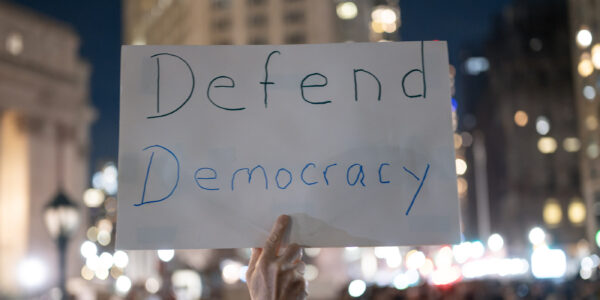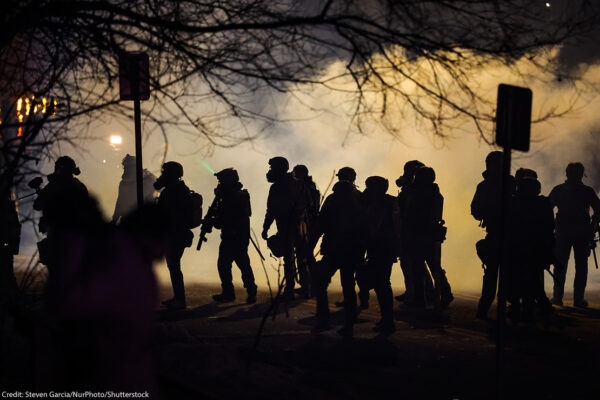This afternoon, I attended the confirmation hearings on Judge John Roberts, President Bush’s nominee for chief justice of the Supreme Court.
Also in the Senate Judiciary Committee hearing room were the leaders of most of the nation’s civil rights groups – Wade Henderson of the Leadership Conference on Civil Rights, Ralph Neas of People for the American Way, Debra Ness of the National Partnership for Women & Families, Theodore Shaw of the NAACP Legal Defense and Education Fund, Marcia Greenberger of the National Women’s Law Center, Nan Aron of the Alliance for Justice, Nancy Keenan from NARAL Pro-Choice America and half a dozen other civil rights leaders. Two-thirds of the room was occupied by members of the press. And only 30 or 40 members of the public were allowed to attend and rotate through at half-hour intervals.
Most of the day was taken up by opening statements from each of the senators and from Roberts himself. The initial statements were largely predictable and broke down by party lines – with the Democratic senators raising probing questions and issues, while the Republican senators largely defended Roberts’ record and fought off the comments and concerns raised by critics. Senators Leahy, Kennedy and Feingold raised important concerns, but Senator Durbin from Illinois put it best when he said that history would judge Roberts with one question, “Did you restrict freedom or did you expand it?”
In his opening statement, Roberts gave us a glimpse of how he is likely to handle the week - carefully evading the issues that might get him into trouble. It was clear that he had been thoroughly prepped and he delivered his statement without looking at his notes.
We have raised deep concerns about Judge Roberts’ positions on abortion, affirmative action, religious liberty, and national security. Roberts didn’t mention those topics, but he did draw on many of the themes that his critics have been raising. In fact, he touched on the issues of rule of law and judicial independence in his opening statement.
But the battle seems to be shaping up over the line of questioning that will be allowed, with some Republicans saying that Roberts should not express his opinion on issues - much less cases. There was a flurry among us advocates in the back corner wondering how we could have a confirmation hearing in which the nominee doesn’t discuss his positions on key issues. To refuse to engage the issues would make a mockery of the confirmation process.
Comparisons throughout the hearing were made between the nomination of Judge Roberts and Justice Ruth Bader Ginsburg, who served as Director of the ACLU’s Women’s Rights Project. At least it was clear where Ginsburg stood on the key issues of that time.
The hearings begin in earnest tomorrow with the questioning of the nominee. Let’s hope that it is more than a show. We have to make sure that the fight is not diverted from the real substantive issues raised by the Roberts nomination. If the senators only fight over the line of questions that ought to be allowed, rather than Roberts’ record and judicial philosophy, our democracy will be the loser.


